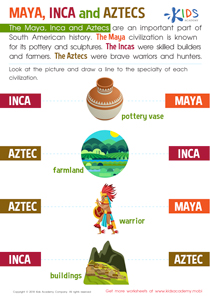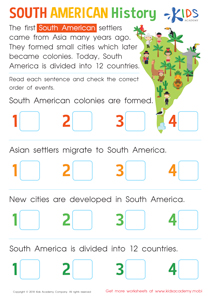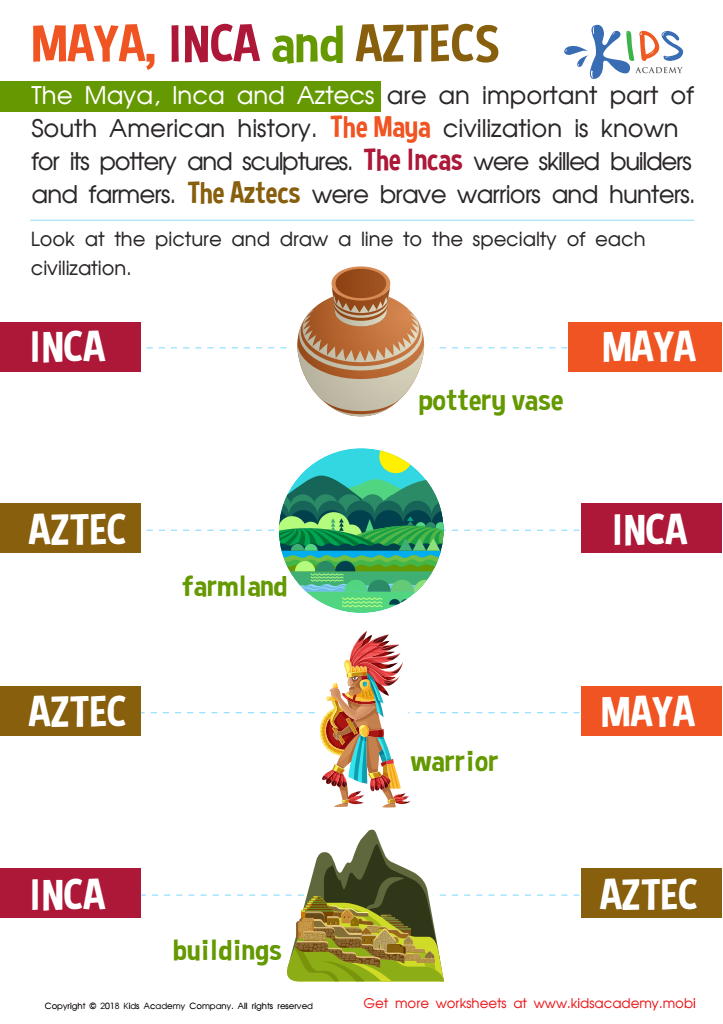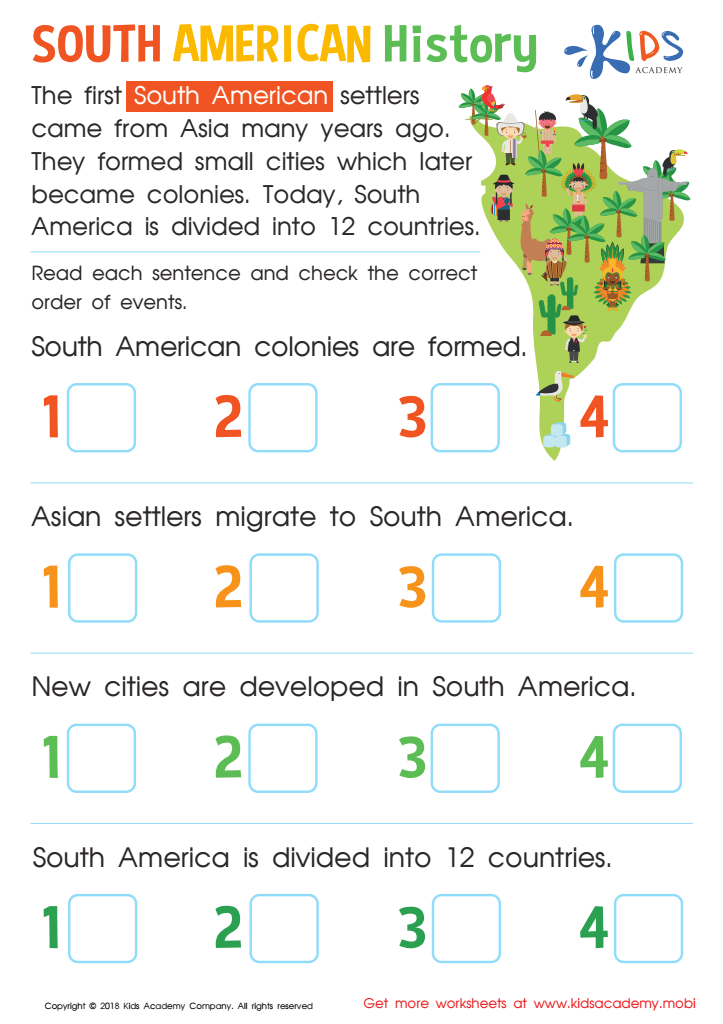South American History - Lesson for Grade 3, Chapter - World History
In the South American History lesson, designed for Grade 3 students as part of the World History chapter in "The World Around You" unit, students will embark on a fascinating journey through time. They will explore the rich histories, cultures, and achievements of three of the most influential civilizations in South America: the Maya, Inca, and Aztecs. Through engaging activities, such as the Maya, Inca, and Aztecs Worksheet along with the South American History Worksheet, students will learn about the unique aspects of each civilization, including their advancements in agriculture, mathematics, and architecture.
Understanding the history of these civilizations is important for several reasons. Firstly, it helps students appreciate the diversity and complexity of human societies. It also highlights the ingenuity and resilience of these ancient civilizations, showing how they overcame environmental challenges to thrive in their respective regions. Furthermore, this knowledge fosters respect for cultural heritage and encourages curiosity about the world’s history. By learning about the Maya, Inca, and Aztecs, students gain valuable insights into the interconnectedness of human societies and the impact of historical events on the present day.


-
Activity 1 / Maya, Inca and Aztecs Worksheet
Important to South American history, the Mayan, Incan and Aztec cultures are exciting to learn about. This worksheet will teach your child about what each culture was known for, and how they were brave warriors, sculptors and farmers. Then, using the traceable lines, they'll connect each culture with its correct associated picture, while they also cement concepts using the PDF's colorful imagery.
-
Activity 2 / South American History Worksheet
Kids love to learn about the histories of other countries, and they'll feel super successful with this free worksheet on South American history. They'll learn how the first South American settlers actually came from Asia many years ago and formed the small cities that turned into colonies. They'll use the information they learn to then answer comprehension questions, putting the events of South American History into sequence as they happened.










